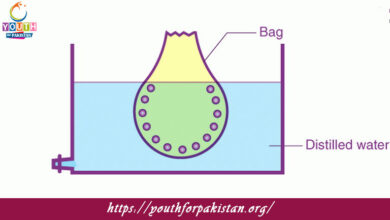Welcome to the Macromolecules MCQs with Answers, it helps learners quickly identify areas for improvement in Macromolecules Online Test.
| Macromolecules are large molecules essential to life and various industries, composed of repeating subunits known as monomers. They include proteins, nucleic acids, carbohydrates, and lipids, each serving distinct biological functions. Macromolecules play critical roles in cellular structure, energy storage, and genetic information transfer.
For comprehensive understanding and preparation in Macromolecules, a variety of educational resources are essential. Macromolecules MCQs offer a diverse range of questions that assess knowledge of polymer structure, function, and synthesis. Macromolecules quiz questions reinforce learning by focusing on specific aspects of biomolecular chemistry and applications in biology and materials science. Comprehensive exam preparation is supported through Macromolecules multiple choice questions, covering essential topics and advanced concepts necessary for a thorough understanding. |
Macromolecules Online Quiz
By presenting 3 options to choose from, Macromolecules Quiz which cover a wide range of topics and levels of difficulty, making them adaptable to various learning objectives and preferences. You will have to read all the given answers of Macromolecules Questions and Answers and click over the correct answer.
- Test Name: Macromolecules MCQ Quiz Practice
- Type: Quiz Test
- Total Questions: 40
- Total Marks: 40
- Time: 40 minutes
Note: Answer of the questions will change randomly each time you start the test. Practice each quiz test at least 3 times if you want to secure High Marks. Once you are finished, click the View Results button. If any answer looks wrong to you in Quiz, simply click on question and comment below that question, so that we can update the answer in the quiz section.
Download Certificate of Macromolecules Test
On the end of Quiz, you can download the certificate of the quiz if you got more than 70% marks.
Macromolecules Flashcards

What is the function of proteins in oxygen transport?
Binding and carrying oxygen

Which macromolecule is involved in the transport of oxygen in blood?

What is the function of lipids in cell membranes?
Providing structural support

Which macromolecule is involved in the synthesis of cell membranes?

What is the function of proteins in hormone signaling?
Regulating metabolic activities

Which macromolecule is involved in the regulation of metabolic activities?

What is the function of lipids in hormone synthesis?
Precursor to steroid hormones

Which macromolecule serves as a precursor to steroid hormones?

What is the function of carbohydrates in animal cells?

Which macromolecule provides quick energy to cells?

What is the function of proteins in cell membranes?

Which macromolecule is composed of chains of amino acids linked by peptide bonds?

What is the function of carbohydrates in plant cells?
Providing structural support

Which macromolecule serves as a long-term energy storage in animals?

What is the main function of lipids in cell membranes?

Which macromolecule plays a crucial role in immune response and defense mechanisms?

What is the function of nucleic acids in cells?
Storing genetic information

Which macromolecule is composed of nucleotides?

What is the function of proteins in living organisms?

Which macromolecule is responsible for storing and transmitting genetic information in cells?

What is the function of carbohydrates in living organisms?

Which macromolecule is composed of long chains of sugar molecules?

What is the main function of RNA in cells?
Translating genetic information

Which macromolecule forms the major component of cell walls in plants?

What is the function of DNA in living organisms?
Storing genetic information

Which macromolecule is primarily involved in heredity and genetic information transfer?

What is the function of lipids in living organisms?

Which macromolecule includes fats, oils, and waxes?

What is the main structural component of cell membranes?

Which macromolecule provides structural support to cells and tissues?

What is the function of enzymes in living organisms?
Catalyzing biochemical reactions

Which macromolecule is made up of long chains of amino acids?

Which nucleic acid carries genetic information?

What is the sugar found in RNA?

What is the sugar found in DNA?

Which macromolecule is composed of nucleotides?

What is the primary function of carbohydrates?

Which macromolecule functions as energy storage in the body?

What type of bond holds amino acids together in proteins?

What is the building block of proteins?
If you are interested to enhance your knowledge regarding Physics, Computer, and Biology please click on the link of each category, you will be redirected to dedicated website for each category.






